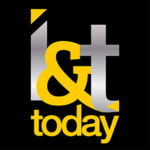Efficiency is critical for a well-managed, effective, and successful healthcare practice. It influences patient experience and your practice’s overall productivity. Your healthcare practice’s efficiency is key to keeping returns high and expenses low. With the right medical software and tech tools, you can significantly boost your practice’s efficiency. Below are seven tech tools for improving the efficiency of your healthcare practice.
1. Robotic Surgery Systems
Robotic surgery systems are medical software solutions that offer unparalleled efficiency and precision in different surgical procedures. These systems are used by experienced surgeons to do complicated operations with improved accuracy. Robotic surgery systems come with ergonomic designs and intuitive interfaces that give healthcare practitioners more control and comfort during surgical procedures. This minimizes surgeon fatigue while enhancing performance. Some of the robotic surgery systems your healthcare practice can invest in include:
- Da Vinci surgical system: It’s the most recognized and applied robotic surgery system. It comes with a surgeon-operated console, a high-definition 3D vision system, a patient cart with robotic arms, and other features. The system is mainly used in gynecology, urology, plus general surgery.
- The Mako robotic system: It’s designed to enhance the accuracy and precision of joint replacement surgeries. This solution offers customized surgical experiences tailored to a patient’s anatomy, resulting in better implant fit and alignment and boosting joint implant longevity, which leads to better patient functional outcomes.
2. Electronic Health Records
Electronic health records (EHRs) are real-time patient-focused records that securely and instantly avail information to authorized users. They help improve your healthcare practice’s management by boosting efficiencies and reducing costs. EHRs increase staff efficiency by ensuring the following:
- Reduced paperwork: EHRs streamline administrative tasks like processing billing requests and filling out forms, saving staff effort and time while making them more efficient.
- Easy access to patient records: When your healthcare practice’s staff can easily access patient records, they save the time they would have otherwise spent looking for paper charts.
- Healthcare providers remain current with healthcare research: EHRs help doctors stay current by letting them access the latest information quickly. With EHR software, medical practitioners can easily locate relevant patient studies and articles related to patient cases.
Electronic health records enable your healthcare practice to provide better data security and privacy, reducing the risk of operational inefficiencies associated with data theft.
3. Patient Portal
Patient portals are applications or secure online sites through which patients access their medical information, including test results and medical records. These tools enable your healthcare practice to streamline standard procedures, saving staff time. Patient portal software can improve your business’s efficiency by helping you:
- Simplify administrative tasks: Patient portals allow users to pay bills online, manage insurance data, and update personal information while providing an alternative to paper records. This relieves your staff of the burden of dealing with such tasks so they can focus more on improving patient health.
- Enhance patient communication: Patient portals facilitate the exchange of information between healthcare providers and patients. This means your practice and its patients can enhance their interactions by posting inquiries, responses, and messages without engaging in lengthy phone and email conversations.
- Improve healthcare practice workflow: Patient portals can help your healthcare practice run more smoothly by reducing paperwork, improving team communication, and simplifying payment and invoicing procedures.
4. Practice Management Software
Practice management systems are software applications used to manage and operate healthcare practices. They help streamline and organize administrative tasks, consultation notes, appointment schedules, medical records, and more. Tech tools such as practice management systems enable your healthcare practice to:
- Deliver better patient outcomes by handling tedious administrative activities.
- Accommodate all crucial files and records in a single place for easy access.
- Simplify your billing procedures, eliminating the hassles of billing calculations, debt claiming and management, and quoting to ensure timely payments.
Some practice management tools have features like documentation tools to help your team work more efficiently. For increased efficiency, consider integrating your practice management software with the rest of your practice’s tech solutions, including billing software and EHR.
5. Telehealth Software
Telehealth software is a solution that ensures medical care delivery is easily accessible to patients. It enables clinicians and patients to connect remotely via technology. The various types of telehealth software your practice can invest in include:
- Mobile health applications are mobile apps that allow patients to access medical care information and services remotely. The applications offer a broad range of functionalities, such as medication reminders, educational resource access, appointment scheduling, symptom tracking, and more.
- Remote patient monitoring: The software enables your practice to remotely track and monitor patient health data and vital signs. Patients use sensors and wearable devices to gather data, including heart rate, blood pressure, oxygen saturation, or blood sugar levels.
- Video conferencing: With this solution, your healthcare practice and patients can connect for real-time virtual consultations. The video conferencing technology facilitates visual evaluations while promoting effective communication between patients and care providers.
6. Medical Billing Software
Accurate medical billing is vital for your practice’s administration. This is where the medical billing software comes in. It simplifies the tedious, time-consuming processes that come with medical billing. Manual data entry is not only delicate but time-consuming as well. Integrating billing software with EHRs saves time and boosts productivity. It also reduces the risk of costly healthcare billing errors while ensuring easier documentation.
With a dedicated system, claims processing becomes more efficient. You can utilize your medical billing software to do real-time claim tracking to ensure you can see precisely where your practice is about its revenue cycle.
7. E-Prescribing Tools
E-prescription tech tools enable your healthcare practice to send accurate, easy-to-understand prescriptions directly to the pharmacy using fully electronic methods. With this solution, you don’t have to write prescriptions manually, print them out, and hand them over to patients to have them filled at the pharmacy.
E-prescribing software facilitates accurate dose calculations, reducing the risk of errors. It ascertains that patients receive the correct medication via an automated prescribing system, which improves prescription integrity. With an e-prescribing tool, your practice’s pharmacists don’t have to spend much time verifying prescriptions because they’re already written correctly.
Endnote
Efficiency is vital to ensuring a well-managed and successful healthcare practice. Besides influencing your practice’s overall productivity, it influences patient experience and satisfaction. With the help of robotic surgery systems, electronic health records, patient portals, medical billing software, and more, you can improve the efficiency of your healthcare practice.











